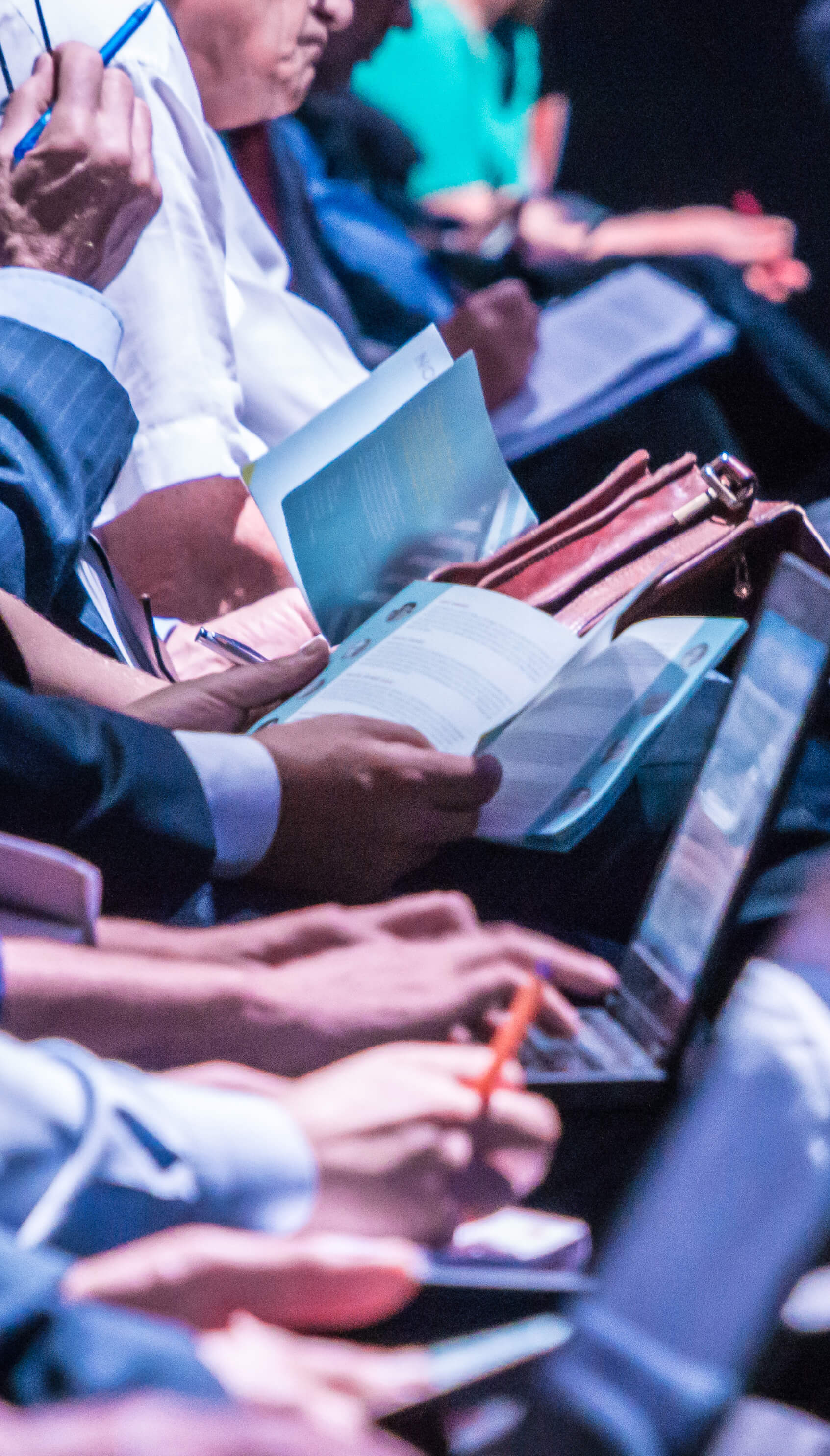European governance remains on top of the research agenda at Bruegel. The central priorities concern the best way to address market tensions, the broader macroeconomic policy response in the EU, policies to foster macroeconomic adjustment, and the question of how to reform European governance to ensure effectiveness and legitimacy. More on this research area
ABOUT BRUEGEL
BRUEGEL AT A GLANCE
Bruegel is the European think tank that specialises in economics. Established in 2005, it is independent and non-doctrinal. Bruegel’s mission is to improve the quality of economic policy with open and fact-based research, analysis and debate. We are committed to impartiality, openness and excellence. Bruegel’s membership includes EU Member State governments, international corporations and institutions.
Through publications, events, social media, and a lively blog, Bruegel has carved a unique discussion space for everyone interested in improving the quality of economic policy. Through a dual focus on analysis and impact, and dynamic relationships with policymakers at every governance level, it has also established itself as a vibrant laboratory for economic policies.

RESEARCH AREAS
-
In this research area, Bruegel is analysing three separate themes: monetary policy, fiscal policy and structural policies that will contribute to economic policies in the post-pandemic era. More on this research area
-
Research focus is on auditing and financial disclosure and the regulation, supervision and resolution of global financial firms. Another key research topic in this area is the changing financial landscape in Europe in a context of growing pressure to re-nationalize financial policy and on the link between the sovereign and the banking crisis in Europe. More on this research area
-
In this area Bruegel researchers address the recurring issues of EU relations with its extended neighbourhood and economic relations with China and the rest of the world. More on this research area
-
Bruegel has been mainstreaming the work on green transition in all his areas of research. In particular looking at the macroeconomics of decarbonisation, alongside the specific analysis of the measures towards a green economy in Europe and beyond. More on this research area
-
A growing share of Bruegel’s research has been devoted to the study of the structural underpinnings of economic performance, competitiveness and growth. Topics covered include: the role of information technology for growth, competition policy and state aid, entrepreneurship, globalisation and future of manufacturing, firm internationalisation and competitiveness, energy and climate policies and their implications for economic performance. More on this research area
-
This strand of work stems from the research project on the future of work. The first theme will touch on general issues and the second, done in collaboration with US experts, will exchange views and best practices in the area of the future of work, in order to feed into current and future EU-US policy dialogues and to develop policy ideas to address challenges related to the future of work. More on this research area

COLLECTIVE AGREEMENT OF THE RESEARCH PROGRAMME
Bruegel’s research is built around a focused medium-term research programme. This programme is divided into three-year cycles, and serves as the basis of our approach to governance, research, outreach and fundraising. Within this time horizon we have an annual research programme.
Every Bruegel member plays a role in identifying research priorities on an equal footing, through collective and public discussions that takes place during statutory meetings. Both the three-year cycles as well as each annual research programme are adopted by the board each September, after discussions between Bruegel scholars, members and other stakeholders.

GOVERNANCE
Bruegel is a non-profit international association under Belgian law (AISBL), governed by its Statutes and its Bylaws. Bruegel’s highest decision making forum is the General Assembly consisting of Bruegel’s members. It confirms the Board and elects six of its members directly.
The Board is chaired by Erkki Liikanen. The Board decides on strategy, adopts the research programme and budget and appoints the Director and the Deputy Director each for a period of three years renewable twice. Bruegel’s former chairs Leszek Balcerowicz and Jean Claude Trichet are honorary chairmen of Bruegel. Mario Monti is the founding chairman of Bruegel.
The Director – currently Guntram Wolff – is responsible for the executive management of Bruegel, with the assistance of the Deputy Director, currently Maria Demertzis and other managers. They prepare the Board meetings, the research programme, annual work plan, budget, and annual report and present them to the Board. The Director and Deputy are responsible for the editorial direction, exercise editorial oversight of publications and control the quality of output. Bruegel takes no institutional standpoint and publications reflect the views of the authors only. Bruegel’s Scientific Council advises on research and provides regular academic appraisals of published papers.
-
The Scientific Council is appointed by the Board and advises Bruegel’s management and staff, as well as the Board, on research. It also evaluates the quality of Bruegel’s research. The chairperson of the Scientific Council attends Board meetings.
Every three years the scientific council delivers an evaluation report. This report informs the research strategy and serves as a basis for the work of the review task force, a diverse and independent group appointed by members every three years to evaluate all aspects of Bruegel’s work, from research to management (Review Task Force Report 2019).
Bruegel is comprised of a core fellowship of top researchers from around the world, Resident, Non-resident and Affiliate, plus a team of operational staff. It also operates a Visiting Fellow programme, which allows researchers from around the world to contribute to Bruegel’s work for a limited time, normally visiting from another institution. For any questions on membership and Bruegel more generally, please do not hesitate to contact Giuseppe Porcaro.
HISTORY
The concept of Bruegel was initially developed jointly by two French economists, Jean Pisani-Ferry and Nicolas Véron, in the autumn of 2002. On 22 January 2003, the project was endorsed and officially floated by French President Jacques Chirac and German Chancellor Gerhard Schröder in their joint declaration in Paris, marking the 40th anniversary of the De Gaulle-Adenauer Elysée Treaty.

AWARDS AND RANKINGS
Transparify has awarded Bruegel five stars out of five for transparency for the fourth year running (2014-2018), recognising its openness about financing and governance.
Prospects Magazine Awarded Bruegel European Economic Think Tank of the Year in 2015, 2016, 2017 and in 2019.
The 2020 Global Go To Think Tank Index Report, published by the University of Pennsylvania, ranked Bruegel as such:
- #1 Top Think Tanks in Western Europe
- #1 Top International Economics Policy Think Tanks
- #2 Top Think Tanks Worldwide (US and Non-US)
- #2 Think Tanks with Outstanding Policy-Oriented Research Programs
- #2 Best Quality Assurance and Integrity Policies and Procedures
- #2 Best Institutional Collaboration Involving Two or More Think Tanks
- #4 Think Tanks with the Most Significant Impact on Public Policy
- #5 Best Managed Think Tanks
- #5 Think Tanks with the Best Use of the Internet
- #5 Best Use of Media (Print or Electronic)
NAME
The name Bruegel, initially proposed by Mario Monti, can be understood as standing for Brussels European and Global Economic Laboratory. It was also chosen because of the extraordinary evocative potential and resonance of the artistic work of Pieter Bruegel the Elder (the only one in the Bruegel/Breughel painters’ family who adopted this spelling of his name) with the think tank’s aims and identity.
-
Pieter Bruegel drew his inspiration from the keen observation of the life of ordinary people and daily economic activity, thus echoing Bruegel‘s concrete orientation and focus on facts-based research and analysis. He also embodied European diversity, having been born in the Netherlands, trained in Flanders and Italy, inspired by painters from Germany (such as Dürer) and elsewhere, before his 1569 death in Spanish-occupied and partly French-speaking Brussels. He lived in a Europe that was marked by disorder but also by intense exchanges across countries, an unprecedented opening to the world and questioning of long-accepted ideas: an era which, for Bruegel the think tank, acts as a stimulating source of inspiration.

GENDER EQUALITY PLAN
Bruegel values and promotes gender balance and currently (September 2021) has a gender balanced leadership at the management and board level. Being an organisation striving for high quality and independence, we value diversity of views at our events and in our research.
Bruegel’s management adopts this Gender Equality Plan (GEP), with the purpose of taking stock of gender balance at Bruegel and providing guidance and practical steps on future commitments. It is made available internally, for all staff members involved in the planning, steering, and monitoring of activities at Bruegel and externally, on Bruegel’s website. More on Bruegel’s Gender Equality Plan